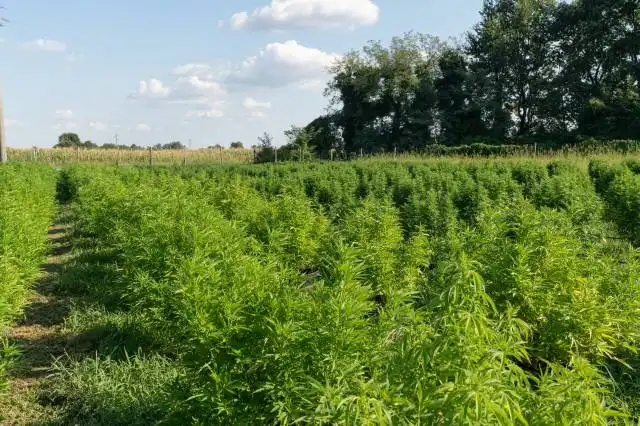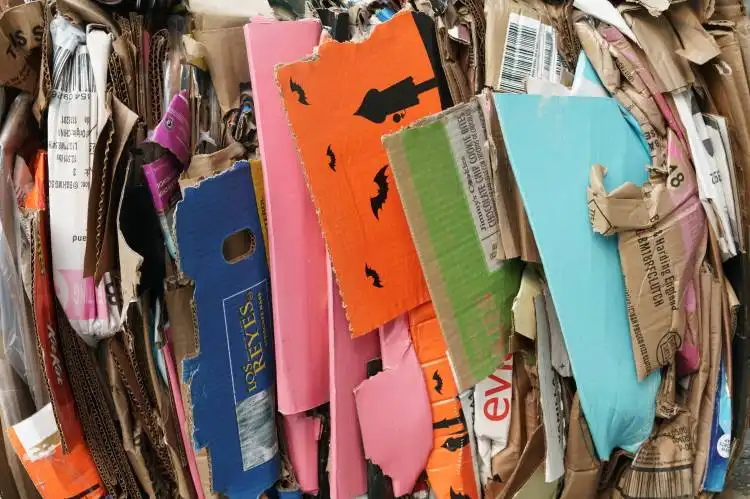Start a Compost Business
Green Gold : Turning Waste into Wealth with a Compost Business
| Updated


COMPOST BUSINESS
Ready to get your hands a little dirty? Starting a compost business is not only environmentally friendly but also a brilliant and innovative endeavor. As the owner of this type of business, you'll collect organic waste from homes and businesses and convert it into compost, a nutrient-rich soil. Your little green business can be a big shot in promoting ecological balance and also establish a healthy, lush transformation for local gardens, farms, and landscapes. The idea is not only turning waste into wealth but contributing to the health of our precious Mother Earth.
Jump to Business Plan
RELATED BUSINESS IDEAS
Browse ALL Sustainability & Eco-Friendly Initiatives Business Ideas
Discover Your Perfect Domain
Unlock the door to your online success with our hand-picked selection of premium domain names. Whether you're starting a new venture or rebranding an existing one, the right domain can set the tone for your digital presence. Browse through our curated list, each with its unique potential to enhance your brand's visibility and credibility.
COMPOST MINI BUSINESS PLAN
This a quick reality check to help you identify the strengths and weaknesses of your business concept before you dive in.
Business Idea: Compost Business
Expected Percent Margin:
- Gross margin: 30-40%
- Net profit margin: 10-15%
Earnings Expectations:
- Daily Earnings: $100 - $200
- Weekly Earnings: $700 - $1,400
- Monthly Earnings: $3,000 - $6,000
- Annual Earnings: $36,000 - $72,000
Actions to Hit Those Numbers:
Resource Acquisition and Processing:
- Raw Material Collection: Regular collection from homes, restaurants, and other businesses.
- Composting Infrastructure: Invest in bins, tumblers, and other necessary composting equipment.
Marketing and Customer Acquisition:
- Social Media: Engage with local gardening groups on platforms like Facebook and Instagram.
- Direct Marketing: Engage with farmers, garden centers, and landscapers to market the compost.
Sales and Distribution:
- Online Presence: Create a user-friendly website with e-commerce capabilities.
- Local Delivery: Offer delivery services within the local area.
Cost Control:
- Fuel Efficiency: Maintain vehicles to ensure efficient use of fuel when collecting raw materials or delivering compost.
Business Operations:
- Operating Hours: Consider operating 5-6 days a week and adjust based on demand.
- Transaction Volume: Aim for 10-20 transactions per day at different scales (bags, truckloads, etc.).
Remember, these are generalized estimates and actual results will depend on various factors. Always obtain professional advice for your specific circumstances.
NOT WHAT YOU HAD IN MIND? Here are more ideas



Browse ALL Sustainability & Eco-Friendly Initiatives Business Ideas
Grab Your Business Website Name
Before you get caught up in the whirlwind of setting up your business, invest in a domain name. It's a small but significant step that lays the foundation for your brand and makes it easier for customers to find and trust you. Just like you wouldn't build a house without securing the land first, don't build a business without securing your domain name.
"Why? Can't that wait?" Here's why it shouldn't
Step 1: Determine if a Compost Business is Right for You
Breakdown of Startup Expenses
When considering starting a compost business, it is important to understand the startup expenses that will be involved. This includes the cost of the composting equipment, the cost of any necessary permits, the cost of any necessary licenses, the cost of any necessary insurance, and the cost of any necessary marketing materials. Additionally, you will need to factor in the cost of any necessary labor, the cost of any necessary supplies, and the cost of any necessary storage space. It is important to thoroughly research all of these expenses before committing to starting a compost business.
Breakdown of Ongoing Expenses
In addition to the startup expenses, it is important to understand the ongoing expenses that will be involved in running a compost business. This includes the cost of any necessary labor, the cost of any necessary supplies, the cost of any necessary storage space, the cost of any necessary marketing materials, and the cost of any necessary permits. Additionally, you will need to factor in the cost of any necessary licenses, the cost of any necessary insurance, and the cost of any necessary equipment maintenance. It is important to thoroughly research all of these expenses before committing to starting a compost business.
Examples of Ways to Make Money
When considering starting a compost business, it is important to understand the different ways to make money. This includes selling compost directly to customers, selling compost to local farmers and gardeners, selling compost to landscaping companies, and selling compost to nurseries. Additionally, you can offer composting services to businesses and organizations, offer composting classes and workshops, and offer composting consulting services. It is important to thoroughly research all of these potential sources of income before committing to starting a compost business.
Step 2: Name Your Compost Business
When it comes to naming your compost business, it’s important to pick a name that is memorable and reflects the type of business you are running. Consider using words that evoke a feeling of sustainability or environmental friendliness. You may also want to consider using a pun or alliteration to make the name more memorable. Additionally, it’s important to make sure the name you choose is not already taken by another business. You can do this by searching online and checking with the local government to make sure the name is available.
Once you’ve chosen a name, you’ll need to register it with the local government. This will make sure that no other business can use the same name. Additionally, registering your business name will make it easier to open a business bank account and apply for any necessary permits or licenses.
You may also want to consider registering your business name as a trademark. This will protect your business name from being used by other businesses and will give you exclusive rights to use the name. Additionally, it will help you stand out from the competition and give your business a more professional appearance.
Finally, once you’ve chosen and registered your business name, you’ll need to create a logo. This will be used on all of your marketing materials, business cards, and website. Make sure the logo is professional and reflects the values of your business. Additionally, you may want to consider hiring a professional designer to create a logo that is unique and memorable.
Step 3: Create a Business Plan
Creating a business plan is an important step in starting any business. It should include a detailed description of the business, the products or services you plan to offer, your target market, a marketing strategy, and a financial plan. Additionally, it should include a competitive analysis, a mission statement, and a management plan.
Writing Your Business Plan
When writing your business plan, it is important to be as detailed as possible. Start by outlining the purpose of your business and your goals. Then, provide an overview of your products or services, and how they will meet the needs of your target market. Next, outline your marketing strategy, including how you plan to reach your target market and how you will differentiate yourself from competitors. Finally, provide a financial plan, including estimated startup costs, ongoing expenses, and projected income.
Step 4: Obtain Licenses and Permits
Before starting a compost business, it is important to understand the licenses and permits needed to operate legally. Depending on the state, local, and federal regulations, the licenses and permits required may vary. Generally, compost businesses will need a business license, a waste management permit, and a health and safety permit. Additionally, a compost business may need a zoning permit to operate in certain areas.
Business License
A business license is the most basic requirement for any business. It is a document that states that the business is legally registered and can operate in the state. Depending on the state, the business license may need to be renewed annually. It is important to check with the local government to ensure that the business is compliant with all regulations.
Waste Management Permit
A waste management permit is required for any business that deals with organic waste. This permit ensures that the business is compliant with all local, state, and federal regulations regarding the disposal of organic waste. The permit will also outline the requirements for proper disposal of the waste.
Health and Safety Permit
A health and safety permit is necessary for any business that deals with organic waste. This permit ensures that the business is compliant with all local, state, and federal regulations regarding the handling of organic waste. The permit will also outline the requirements for proper handling of the waste, such as wearing protective clothing and using appropriate safety equipment.
Zoning Permit
A zoning permit may be required for a compost business to operate in certain areas. This permit ensures that the business is compliant with all local, state, and federal regulations regarding the operation of the business in the area. The permit will also outline the requirements for operating the business, such as the size of the business and the number of employees.
Step 5: Find a Location
Finding the right location for a compost business is essential for success. The location should be easily accessible to customers and have enough space for the composting process. Additionally, it should be close to a source of organic waste, such as a grocery store, restaurant, or farm. It should also be in a safe area, with good parking and access to utilities.
Considerations for Leasing or Buying Property
When it comes to finding a location, entrepreneurs have the option to lease or buy property. Leasing is often the more cost-effective option, as it requires less upfront capital. However, it also means that the business owner will not have full control over the property and may face restrictions from the landlord. Buying property is more expensive, but it gives the business owner more control over the property and the ability to make long-term investments.
Obtaining Permits and Licenses
Once a location has been identified, the business owner will need to obtain the necessary permits and licenses from the local government. This may include a business license, zoning permit, and health and safety permit. Additionally, the business owner may need to obtain a waste management permit if they plan to collect and transport organic waste.
Establishing a Composting Site
Once all the necessary permits and licenses have been obtained, the business owner can begin to establish their composting site. This may include building or renting a compost bin, purchasing composting equipment, and setting up a composting system. Additionally, the business owner may need to hire staff to help with the composting process.
Step 6: Purchase Equipment
When starting a compost business, there are certain pieces of equipment that are necessary for success. These include a compost bin, a tumbler, a sifter, a shovel, and a wheelbarrow. The compost bin is used to store the organic material that will be used for composting. The tumbler is used to mix the composting material. The sifter is used to separate the finished compost from the unfinished material. The shovel is used to move the composting material from the bin to the tumbler and the wheelbarrow is used to transport the compost from the tumbler to the sifter. Additionally, a truck or trailer may be needed for larger jobs.
Cost of Equipment
The cost of the equipment needed for a compost business can vary greatly depending on the type and quality of the equipment. The compost bin can range from $50 to $500, the tumbler can range from $100 to $2,000, the sifter can range from $50 to $500, the shovel can range from $10 to $50, and the wheelbarrow can range from $50 to $200. Additionally, a truck or trailer can range from $2,000 to $20,000.
Maintenance of Equipment
In addition to the initial cost of the equipment, there are ongoing costs associated with maintaining the equipment. The compost bin should be cleaned regularly to prevent the buildup of bacteria and mold. The tumbler should be lubricated and the blades should be sharpened regularly. The sifter should be cleaned after each use to prevent clogging. The shovel should be cleaned and sharpened regularly. The wheelbarrow should be inspected for any damage and the tires should be inflated. Additionally, the truck or trailer should be inspected regularly and any necessary repairs should be made.
Step 7: Market Your Business
Once you have your compost business up and running, you need to market it to potential customers. There are a variety of ways to do this, including:
- Social media: Create a website and social media accounts for your business and use them to post updates, special offers, and other information about your business.
- Networking: Attend local events and meetups related to composting and sustainability. This is a great way to meet potential customers and build relationships with other businesses in the industry.
- Advertising: Place ads in local newspapers and magazines, as well as on radio and television.
- Word of mouth: Ask your existing customers to spread the word about your business. Offer incentives, such as discounts or free products, for referrals.
- Promotional materials: Create flyers, brochures, and other materials to distribute to potential customers.
Tips for Effective Marketing
In order to ensure that your marketing efforts are successful, there are a few tips to keep in mind:
- Focus on your target audience: Make sure that your marketing materials are tailored to the people you are trying to reach.
- Be consistent: Consistency is key when it comes to marketing. Make sure that your message is consistent across all of your marketing channels.
- Track your results: Track the results of your marketing efforts so that you can adjust your strategy as needed.
- Focus on relationships: Building relationships with customers is key to success. Make sure that you are engaging with customers and responding to their questions and concerns.
- Be creative: Don’t be afraid to think outside the box when it comes to marketing. Try new things and experiment with different strategies to see what works best for your business.
Step 8: Set Up Accounting and Bookkeeping
Accounting and bookkeeping are essential for any business, and a compost business is no different. Accounting and bookkeeping help keep track of income, expenses, and profits. It also helps to ensure that all taxes are paid on time and that all financial records are accurate.
Selecting an Accounting System
When selecting an accounting system, it is important to choose one that is easy to use and understand. There are many different accounting systems available, such as QuickBooks, Xero, and FreshBooks. It is important to research each system to determine which one is best for the business.
Setting Up Accounts
Once an accounting system is chosen, it is important to set up the necessary accounts. This includes accounts for income, expenses, and taxes. It is also important to set up accounts for payroll, if applicable.
Tracking Expenses
It is important to track all expenses related to the business. This includes any supplies, equipment, or services purchased for the business. It is also important to track any expenses related to marketing or advertising.
Tracking Income
It is also important to track all income related to the business. This includes any money received from customers or other sources. It is important to keep track of all income to ensure that all taxes are paid on time.
Hiring an Accountant
If the business owner does not feel comfortable handling the accounting and bookkeeping themselves, it may be beneficial to hire an accountant. An accountant can help ensure that all financial records are accurate and that all taxes are paid on time.
Step 9: Develop a Customer Base
When it comes to developing a customer base, it is important to have a plan in place. Start by researching the local market and identifying potential customers. Consider creating a website or online presence to reach a larger audience. Additionally, consider utilizing social media platforms to advertise your services. Utilize search engine optimization (SEO) techniques to make sure your website is easily found. Additionally, consider using email marketing campaigns to reach potential customers. Finally, consider offering discounts or promotions to attract customers.
Networking
Networking is a great way to develop a customer base. Consider joining local business groups or attending local events. Additionally, consider joining online forums and groups related to composting. This is a great way to connect with potential customers. Additionally, consider reaching out to local businesses and organizations that may be interested in your services. Finally, consider offering referral programs or discounts to existing customers to encourage them to spread the word about your business.
EXPLORE MORE CATEGORIES
Browse ALL Business Idea Categories
TAKE THE NEXT STEPS










